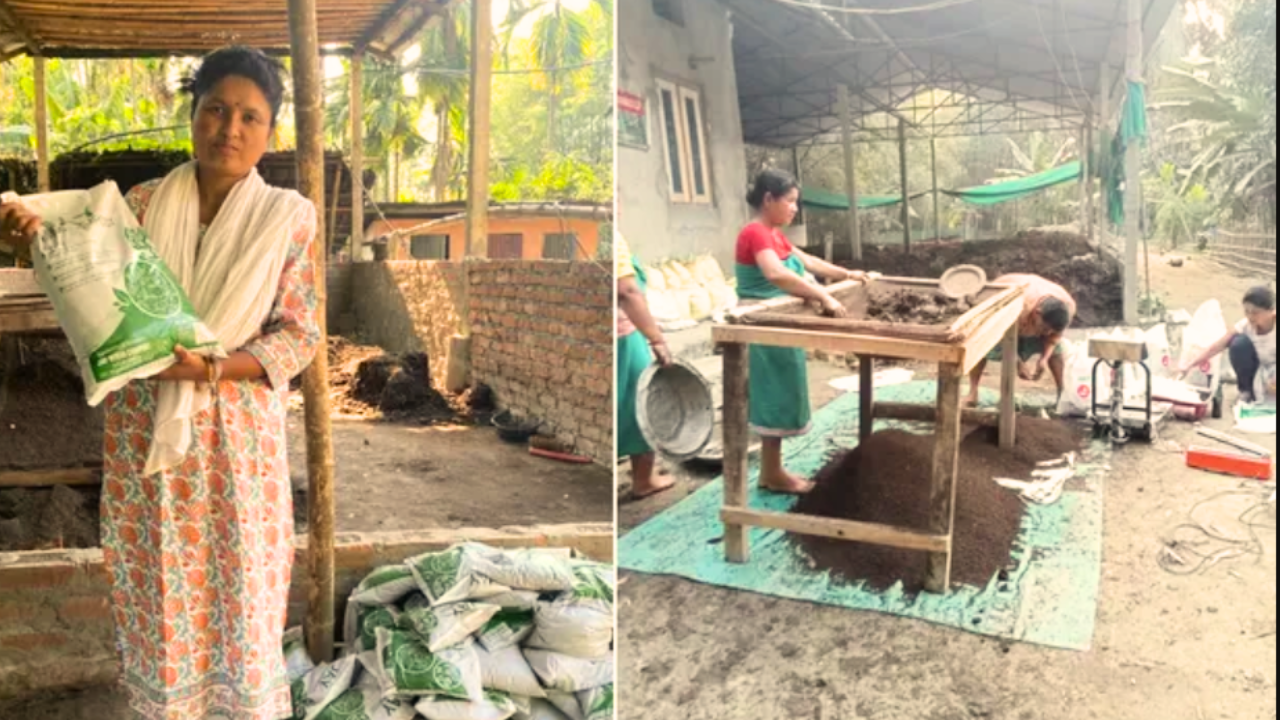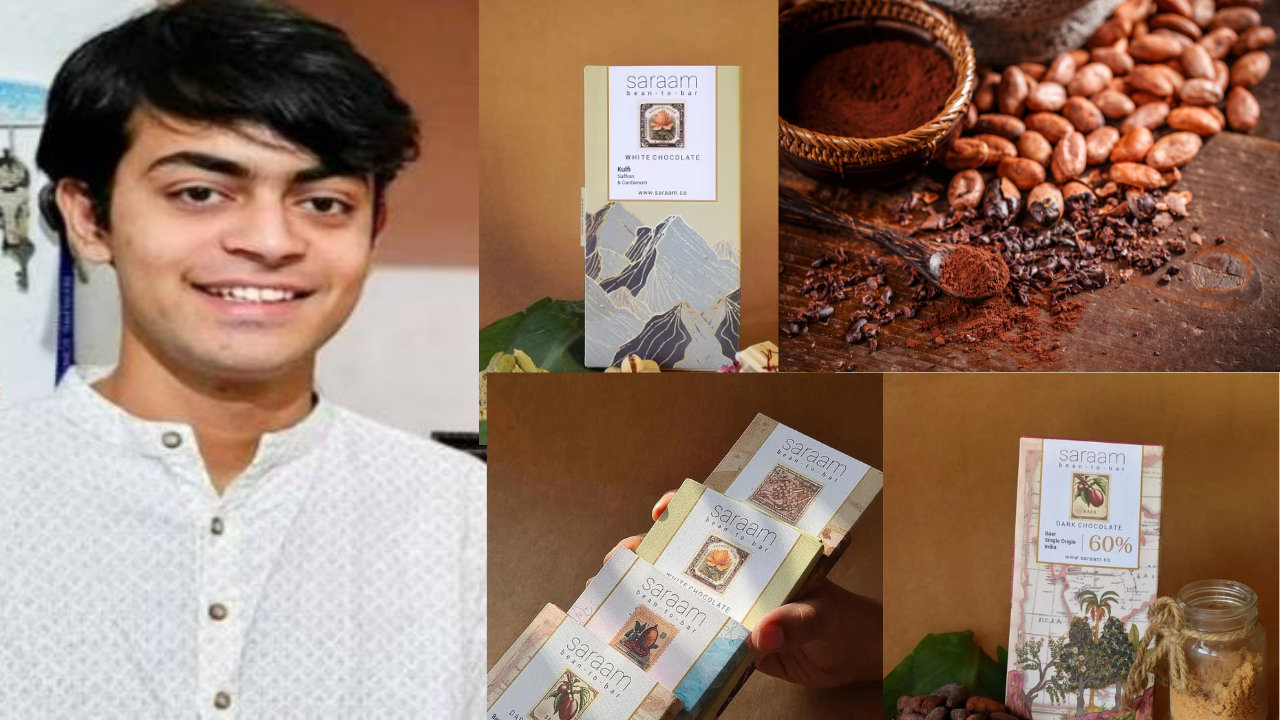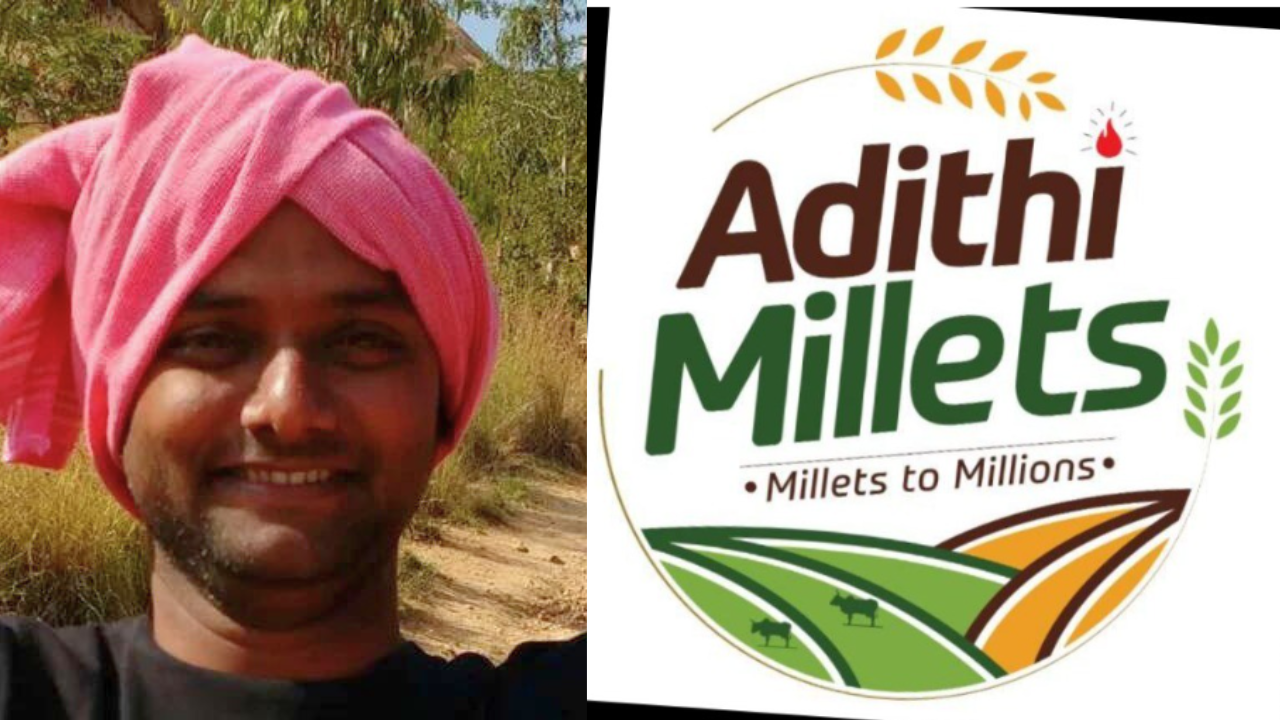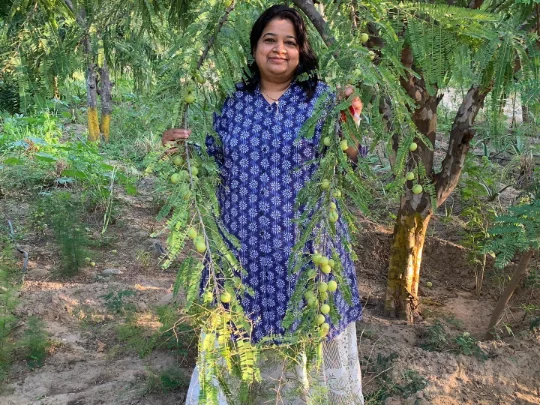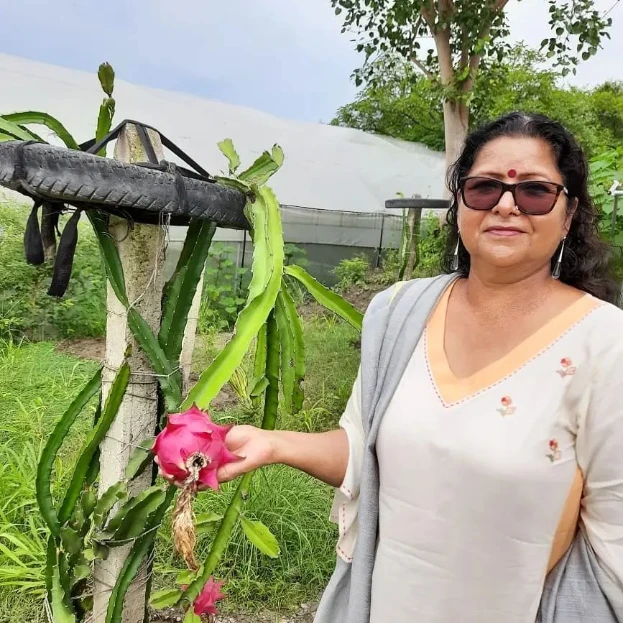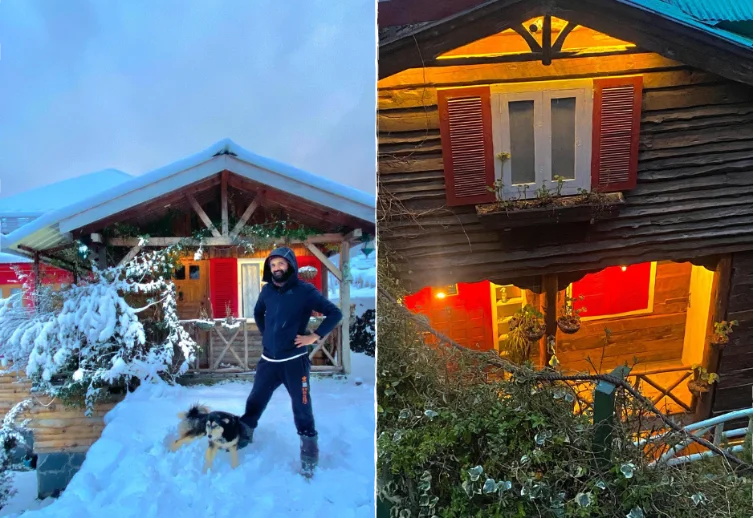In 2008, a year marked by joy and sorrow, Kanika Talukdar of Assam’s Borjhar village welcomed her daughter into the world, only to lose her husband to a sudden illness shortly thereafter. The devastating loss left her with the weight of her daughter’s future squarely on her shoulders.
Kanika recalls those trying times, saying, “My husband was down with a fever for a few days. We found out that he had malaria. The local doctor referred him to a Guwahati hospital for treatment. Along with my father, he left for the city for his treatment, but soon we got the news that he was no more.”
A Truly Inspiring Tale of Perseverance And Grit
Kanika’s life began with the typical dreams and aspirations of a young woman. However, fate had other plans for her. Having completed her education up to class 12, she found herself struggling both financially and professionally. With a daughter to provide for, she took up low-paying jobs like weaving Assamese sarees, earning a meager Rs 1,000 for each saree, a process that consumed eight long days of labor.
She vividly recalls those challenging times, saying, “It would take at least eight days to weave a saree. I could barely earn Rs 4,000 in a month. It was a very small amount for us to survive.”
Kanika’s life took a pivotal turn in 2014 when she attended a workshop that would change her fortunes. Through her self- help group, she discovered a five-day workshop conducted by Krishi Vigyan Kendra (KVK), where she was introduced to various business opportunities, including fish farming, poultry, and vermicomposting. Vermicomposting, in particular, caught her attention because she had easy access to essential raw materials like cow dung and leaves right at her home.
For the first time in years, Kanika felt a glimmer of hope. Armed with a mere Rs 500 from her savings and 1 kg of earthworms provided by KVK, she embarked on her vermicompost journey.
Kanika ingeniously used locally available bamboo to construct the vermicompost beds. To create the vermicompost,
she mixed paddy residue, water hyacinth stems, and cow dung, turning this organic debris into nutrient-rich worm castings.
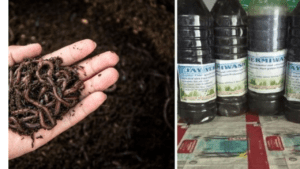
Kanika’s vermicompost business took root, and in just one year, she produced an impressive 800 kilos of vermicompost.
At that time, she sold the compost for Rs 10 per kg, reinvesting all her earnings to expand the enterprise. She purchased additional cows to procure more cow dung and even sourced 30 truckloads of cow dung from local farmers to boost production.
Her dedication and hard work paid off as she set up ten vermicompost beds, each measuring 10×3 feet. Additionally, she established an impressive 85×35 feet vermicompost bed on 1.5 bigha of her family’s land. Today, she proudly produces up to 35 tonnes of vermicompost every month.
Much Deserved Recognition
The turning point in Kanika’s vermicompost business came in 2019 when she attended a two-month orientation program organized by the North East Agriculture Technology Entrepreneurs Hub (NEATeHub), an innovation hub under the Assam Agricultural University.
Kanika received the Padma awards in 2021 from the Indian Council of Agricultural Research (ICAR), New Delhi, which are given at the national level. “A few years ago, I never would have dreamed that I would receive government recognition. She claims that words cannot adequately capture her happiness.

During the training, Kanika acquired crucial skills, including the production of vermiwash, a liquid extract derived from vermicompost, and enriched vermicompost manure with higher nutrient content than regular vermicompost. Vermiwash serves as a biopesticide, while enriched vermicompost improves plant health and prevents diseases.
Kanika’s journey is not just about breaking barriers; it’s about shattering them. With no prior business experience and a humble background, she has carved a path to prosperity that many thought was beyond reach. Today, she not only earns in lakhs every month but also imparts her wisdom to budding entrepreneurs
More insights into Kanika Talukdar’s life here

